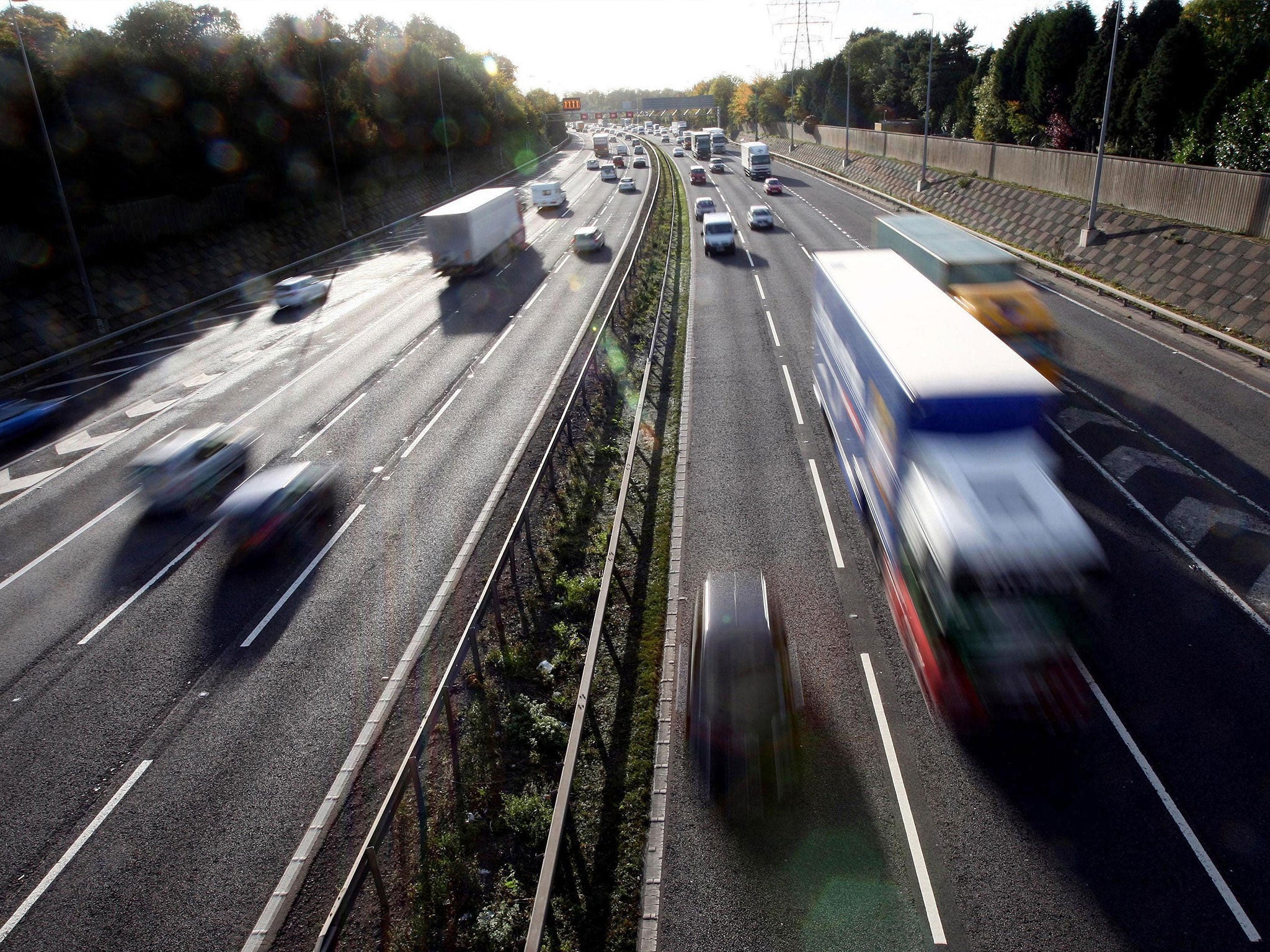The introduction of driverless lorries will have a far-reaching impact on society
The substantial revenues that governments derive from taxing motoring, drivers and transport in all their diverse ways will need to be reformed. Arab potentates and the oil giants will need to do some rethinking too

For all the fuss about the trial of a driverless convoy, or “platoon”, of lorries making its way onto our roads by the end of the year, this is technology that could have been tried out anytime in the past few years or so.
The truth about autonomous vehicles – lorries most topically and most commercially significant, but also vans, buses and passenger cars – is that they have been able to get out and about under their own power using their own brains for some time.
Indeed many apparently unexceptional new family saloons now have so much technology in them that they can almost drive themselves. Satnavs, for example, are now accurate to a degree that allows for the most accurate placement of a vehicle on a road. Lane-sensing radar can effectively steer cars now with minimal input from the driver. Adaptive cruise control will speed up and slow down a car to a standstill in jams or busy roads alike with no manual intervention. If wished, a vehicle can also never exceed the speed limit. Warnings of obstructions ahead mean that cars never need to collide with anything unless the other vehicle is determined to collide with them. Cars can “see” better in the dark than Homo sapiens. Simply joining these technological dots is all that is needed to create a fully autonomous vehicle.
Well, not quite all. Consumer confidence is also required, but this should, in time, come as demonstrations such as the forthcoming autonomous truck road show reassure nervous road users. At the moment people still seem to believe that autonomous vehicles are intrinsically inferior in their judgements and performance to a human driver, something that experience must suggest may be a misplaced faith. That, of course, is only true in any case of sober, alert and thoughtful motorists.
Autonomous technology promises enormous change, enormous benefits and enormous disruption. The threat to the livelihoods of lorry drivers, bus drivers and taxi drivers is obvious. Like the footmen on the steam trains and even drivers on electric mass-transportation systems, they may in a decade or two be a rare sight indeed, confined to vintage vehicle rallies.
The cost of transporting freight, though, will be correspondingly reduced, as the technological investment in making autonomous vehicles and telematics (real-time logistics systems) has been sunk, and any increased cost of the lorry is likely to be outweighed by the cost of employing professional drivers (who also need to have breaks).
If no conventional driving licence is required to get from A to B in one of these autonomous pods, then the numbers of people taking to the road will be much increased; those presently too young or infirm to drive, for example, can enjoy the liberation of secure personal transportation. Quite a boon – but potentially also one that would deliver near-universal congestion without a system to charge road users in a way that discourages peak time use of busy routes.
There would be cultural changes too; no more “designated drivers” for boozy nights out, fewer transport cafes for tired drivers, no more speeding or parking fines, assuming the new vehicles are programmed always to obey the law. No more boy racers either, or pedestrians slaughtered because a driver is watching a movie or texting.
If the new cars are electrically powered, then that adds a second revolution to the other one – the end of the petrol pump, of servicing and repair to complex mechanical machinery, and altogether quieter towns and cleaner air. The substantial revenues that governments derive from taxing motoring, drivers and transport in all their diverse ways will need to be reformed. Arab potentates and the oil giants will need to do some rethinking too. New names such as Google and Tesla and Apple would join, or join with, Ford, VW, Geely and Toyota in the motor business.
When the first railway locomotives arrived almost two centuries ago, it was thought that female passengers’ uteruses would fly out of their bodies at such unnatural speeds. A hundred years ago or so the car in any form was more or less the status symbol of the rich, and not usually a reliable or comfortable one either. In a few years universal personal transport framed by a comprehensive system of road pricing and powered by green energy will revolutionise our world again. Except perhaps when watching the odd classic horror movie, we need not fear the driverless lorry.
Join our commenting forum
Join thought-provoking conversations, follow other Independent readers and see their replies
Comments
Bookmark popover
Removed from bookmarks